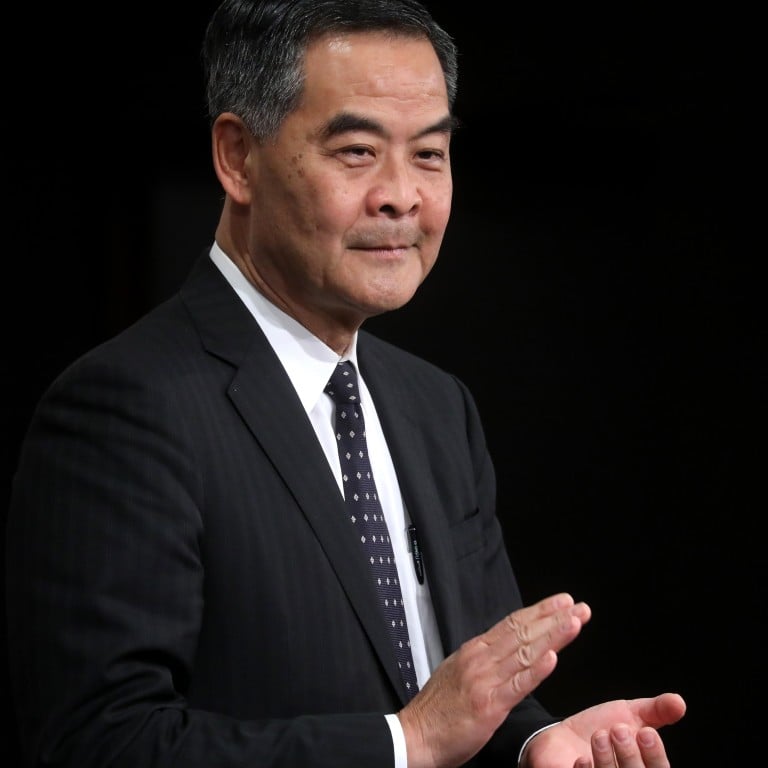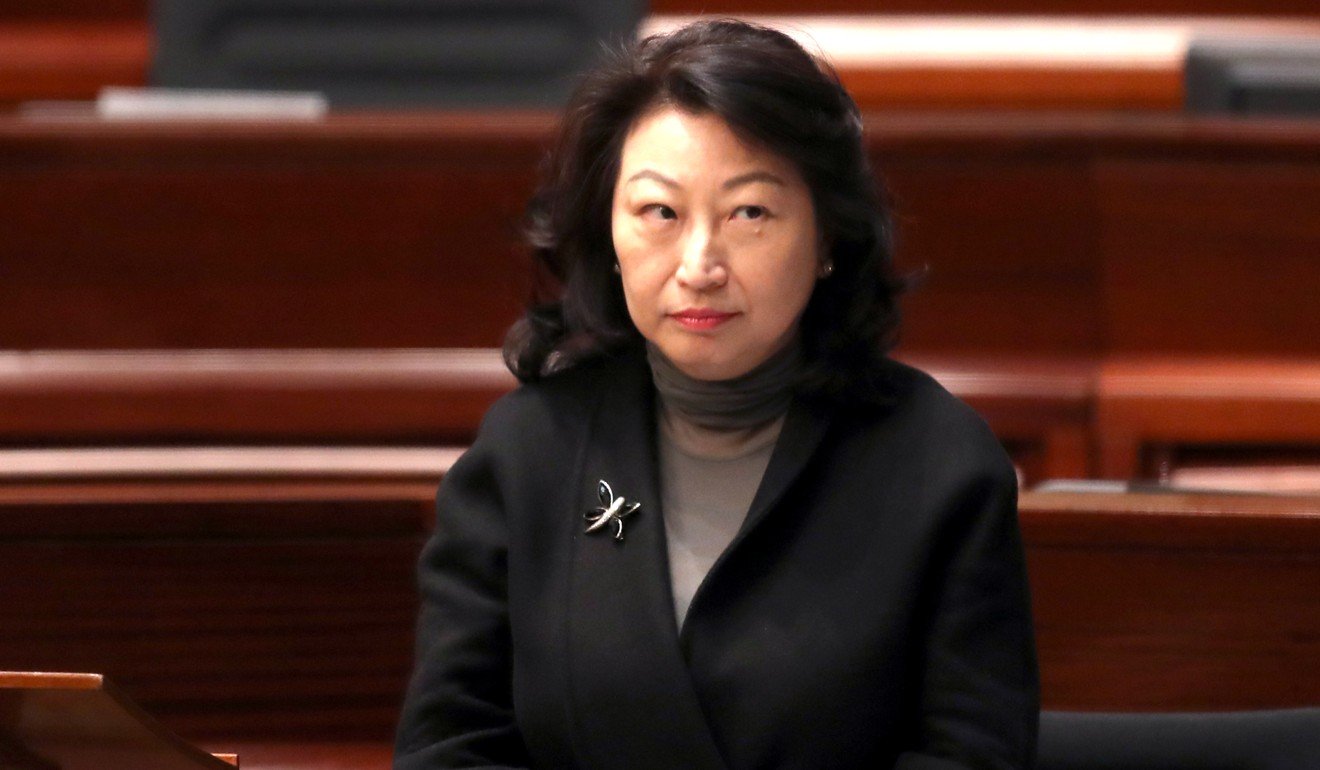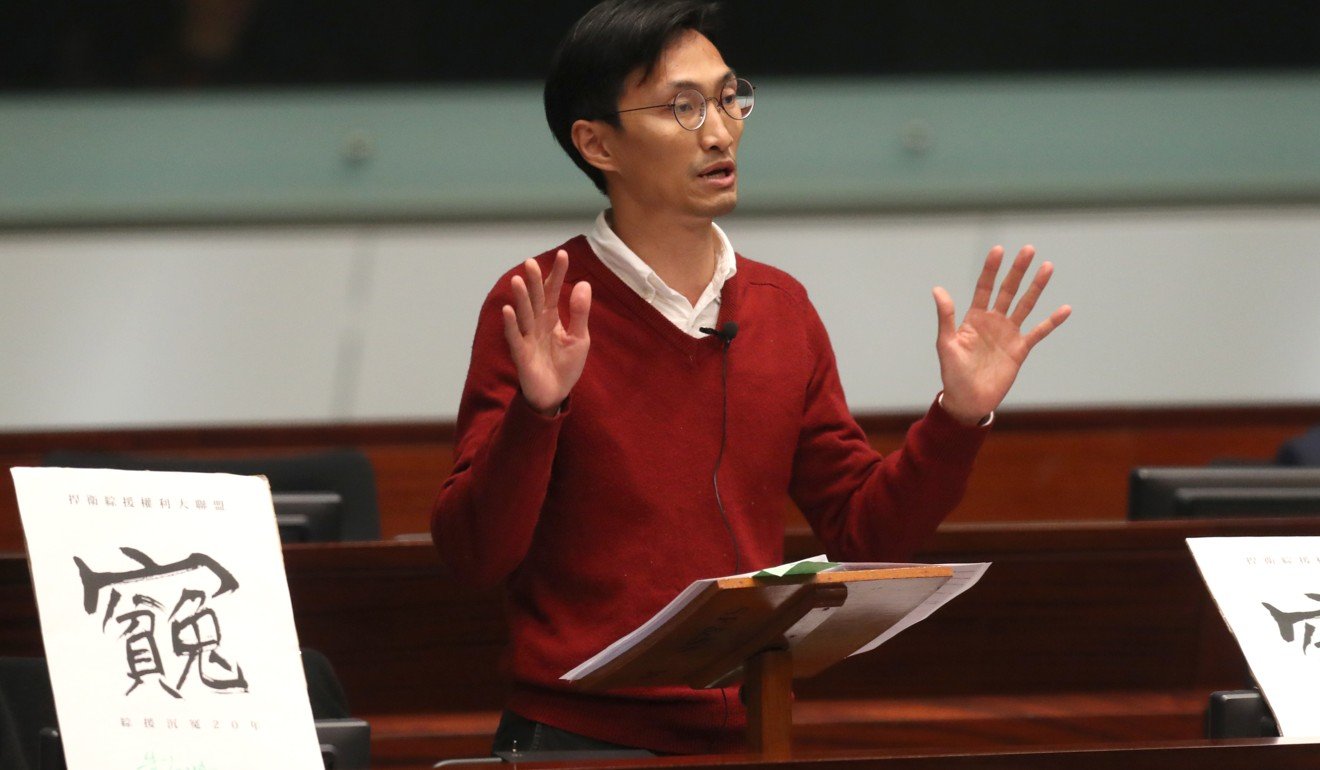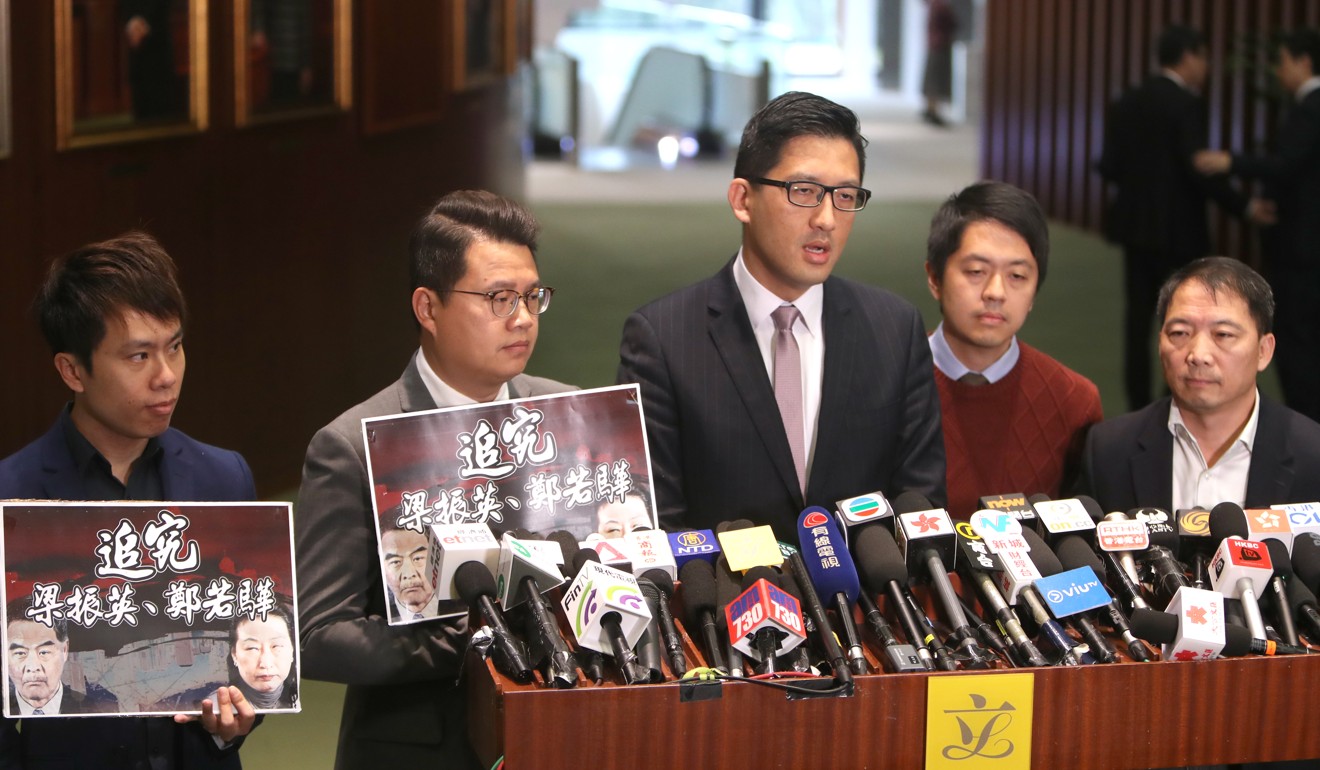
No perceived bias in Leung Chun-ying UGL probe, so no outside legal advice, says Hong Kong justice minister Teresa Cheng
- ‘It is not a must for the DOJ to seek external legal advice when the involved person is a high-ranking official,’ minister tells Legco
- Democrat Lam Cheuk-ting calls on Cheng to resign, citing poll showing her popularity has slipped to a new low
Prosecutors looking into corruption claims against former Hong Kong leader Leung Chun-ying did not need to get outside legal advice because there was no possible perception of bias or conflicting interests, the city’s justice minister said on Wednesday.
Secretary for Justice Teresa Cheng Yeuk-wah’s comments came after her department said last month there was not enough evidence to charge Leung, who received undeclared payments from an Australian firm before and after he became chief executive.
During a Legislative Council meeting on Wednesday, Cheng listed scenarios in which the Department of Justice (DOJ) may seek external legal advice.
One such scenario would be when there is a possible perception of bias or issues of conflict of interest, Cheng said.
“In this case, that does not apply,” she added.

This was an apparent change in stance for Cheng, who on December 26 said that only when internal staff were being investigated was outside legal advice needed.
The minister was responding to a question from Council Front legislator Eddie Chu Hoi-dick, who asked if the minister had deviated from usual practice.
Chu noted the department got outside counsel in cases that involved former officials, such as former chief executive Donald Tsang Yam-kuen and ex-chief secretary Rafael Hui Si-yan, who were jailed for misconduct in separate cases in 2017 and 2014, respectively.
The Independent Commission Against Corruption (ICAC) started investigating Leung in 2014, over his receipt of payments totalling HK$50 million (US$6.4 million) from Australian firm UGL.

UGL had bought DTZ, a company of which Leung was a director. In return for UGL’s cash, Leung pledged not to join or form a rival firm.
He did not declare the payments, received in chunks before and after he became leader, to the judiciary when he took office, as required by Article 47 of the Basic Law, the city’s de facto constitution.
On Wednesday Cheng went on to say that only when a DOJ officer is involved in a case must the department get outside help.
Teresa Cheng’s husband to face court for allegedly building pool without consent
“It is not a must for the DOJ to seek external legal advice when the person involved is a high-ranking official, political figure, or someone with a special background,” she added.
“Whether the case is sensitive or not, there is never a hard requirement to get external counsel.”
In the past three years, only once did the DOJ seek legal advice on a case that did not involve one of its officers, she said. She did not detail the case.
Cheng also said the DOJ’s Prosecution Code says everyone shall be treated equally, and that its decisions shall not be affected by the public’s reaction.
Speaking after the meeting, Cheng gave reporters the department’s definition of perceived bias.
“A fair-minded, involved observer, taking all the relevant circumstances into account, would consider that there is a real risk of bias” in those cases, Cheng said.
Pan-democrats were dissatisfied with Cheng’s answers.
Democratic Party lawmaker Lam Cheuk-ting said Cheng had failed to maintain consistency in the department’s handling of cases.
“It makes people feel that Cheng employed different stances in handling Leung’s case,” Lam, a former ICAC investigator, said.

Separately, the Democratic Party on Wednesday published the results of a survey on public opinion of the DOJ’s handling of Leung’s case.
Conducted by the University of Hong Kong, the survey interviewed 1,005 adults over the phone earlier this month.
It found that 60 per cent thought the DOJ had acted with bias because of Leung’s status as former city leader and current vice-chair of the nation’s top political advisory body.
More than 70 per cent said the DOJ should have got outside counsel, while more than half said the incident had damaged their confidence in Hong Kong’s rule of law.

